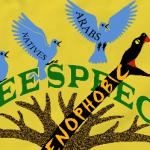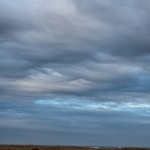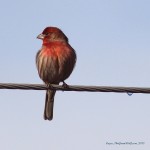You notice how the URL for this section of the Pagan Newswire Collective has the word “nature” in it? Of course. It’s specifically for nature-based pagan religious and spiritual discussions and ideas. I would bet that the majority of people who think of “nature” are thinking of open areas that have a minimum of human impact, where the signs of humanity are reduced or even almost entirely eradicated. And I feel that’s a grave shortcoming in our perceptions.
I want to share with you one of my very favorite quotes. It’s a statement by Richard Nelson, quoted in The Sacred Earth: Writers on Nature and Spirit, edited by Jason Gardner (emphasis mine):
It’s dangerous to think of ourselves as loathsome creatures or as perversions in the natural world. We need to see ourselves as having a rightful place. We take pictures of all kinds of natural scenes and often we try to avoid having a human being in them…In our society, we force ourselves into a greater and greater distance from the natural world by creating parks and wilderness areas where our only role is to go in and look. And we call this loving it. We lavish tremendous concern and care on scenery but we ignore the ravaging of environments from which our lives are drawn.
This is a perfect image of how we have separated ourselves from the rest of nature. Not separating ourselves from nature, but separating ourselves from the rest of nature. That’s been the entire problem all along. Numerous factors ranging from religion to the Industrial Revolution have systematically convinced many portions of humanity that we are “above nature”, that “nature is to be used”, and otherwise referring to “nature” in the third person—nature the It as opposed to nature the Us.
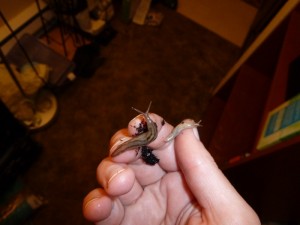
Nature? Nature is everywhere. Nature is the flora in our gut and in the sewers. Nature is the moss growing on old house shingles. Nature is the wind blowing through skyscrapers, in cities whose presence changes the microclimate. Nature is the sun that shines and the rain that falls on every place above ground. And humans? Humans are nature, too. Our big brains and bipedal stance are the adaptations we evolved in order to survive the challenges of being ground-dwelling, omnivorous, hunter-gatherer-scavenger apes. Our cities and buildings are exaggerated manifestations of our nest-building instincts, tempered with aesthetic self-awareness.
And remembering that we are nature reconnects us to everything else. If we remember we are nature, that we cannot separate ourselves from nature, then we come to realize that our cities and other habitations are part of ecosystems—dramatically changed ecosystems, but there nonetheless. We may find that suddenly the issues that affect the environment are immediate—not out in the woods somewhere where we can ignore them, but right here, in our bodies and homes and streets. We can still value the wilderness, but we no longer ghettoize nature as being “out there somewhere that we escape to”.
That’s a very valuable point: the idea that we “escape to nature”. Isn’t it sad that we in the cities feel we are escaping from something that isn’t nature, when in reality nature is all around us? I instead propose that when we are speaking of relatively human-free places, open, quiet areas, we speak of “wilderness” instead of “nature” as a defining term. Wilderness contains an element of primal quality, but without the overarching completion of “nature”. It gives us some way to delineate between the Hoh rain forest on the Olympic Peninsula, and paved-over downtown Seattle, without denying that these places are still family to each other, the blood connecting them embodied in the intertwining waters of Puget Sound and surrounding ways.
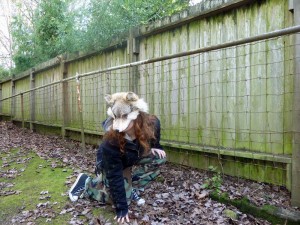 I question the reliance on wilderness as the primary representative to humans of nature. If we are convinced that we can only connect to nature in places away from other humans, then not only are we betraying our poor, disconnected species, especially those who have no choice but to live in cities, but we are also betraying the urban ecosystems as valid representatives of nature. We have abandoned any attempts of making cities healthier places to live for everyone, not just the people rich enough to be able to afford to “escape” on the weekends. We privilege rural animals and plants while taking the urban ones for granted—“dirty pigeons”, “disease-carrying rats”, and “weeds”.
I question the reliance on wilderness as the primary representative to humans of nature. If we are convinced that we can only connect to nature in places away from other humans, then not only are we betraying our poor, disconnected species, especially those who have no choice but to live in cities, but we are also betraying the urban ecosystems as valid representatives of nature. We have abandoned any attempts of making cities healthier places to live for everyone, not just the people rich enough to be able to afford to “escape” on the weekends. We privilege rural animals and plants while taking the urban ones for granted—“dirty pigeons”, “disease-carrying rats”, and “weeds”.
My Therioshamanism blog has had the John Muir quote “In the silence of the wild, we find the home we lost in the city” at the top of it ever since I started it in 2007. I don’t agree with it any more, though I’ve not yet found a good substitute for it just yet. I don’t feel I have lost anything in the city, at least not anything that I can’t find here as well. While I love my trips to the Columbia River Gorge and other wilderness areas, I don’t value them above my talking with the maple tree across the street from my apartment or the scrub jays that vweeeeet though the neighborhood. And it is here in the city, not in the wilderness, that I have found, discovered, returned to the knowledge that I am nature. I joyously embrace the fact that this place is nature as much as Mt. Hood, as much as the Columbia River Gorge, as much as any of the wilderness places I have fallen in love with over time.
For like me, the maple and the scrub jays and all our neighbors are continuing the cycles of nature in this human-strong place, with all its benefits and challenges. I can’t get that experience when I am sitting next to Wahkeena Spring, or at the top of Devil’s Rest. The trees and the jays and I must learn the lessons of nature in this unique place, remember that there are lessons of nature to be learned, and share that remembering with others. If we can accomplish that remembering together then we have more hope, not of destroying cities and losing what is valuable in them, but of bringing our urban nature places back into greater harmony with the rest.


